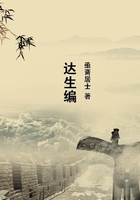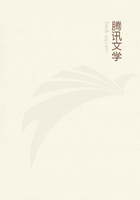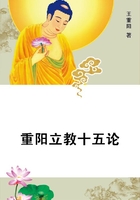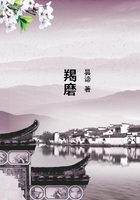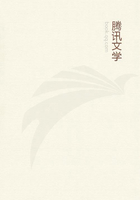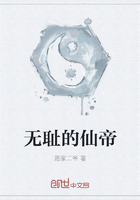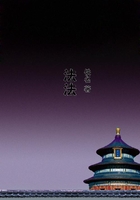In the presence of this assembly, in this hall where dis-union really had its birth, where secession first shone out in all its glory, a former slave ordered a former master to sit down, and was obeyed.
In Charleston the same state of things was to be seen, and for the first time I began to feel sympathy for the South. This feeling was deepened by what I saw in Georgia and Florida; and yet, below it all I seemed to see the hand of God in history, and in the midst of it all Iseemed to hear a deep voice from the dead. To me, seeing these things, there came, reverberating out of the last century, that prediction of Thomas Jefferson,--himself a slaveholder,--who, after depicting the offenses of slavery, ended with these words, worthy of Isaiah,--divinely inspired if any ever were:--``I tremble when I remember that God is just.''
CHAPTER XI
GRANT, HAYES, AND GARFIELD--1871-1881
At various times after the death of Mr. Lincoln I visited Washington, meeting many men especially influential, and, first of all, President Grant. Of all personages whom I then met he impressed me most strongly. At various times I talked with him at the White House, dining with him and seeing him occasionally in his lighter mood, but at no time was there the slightest diminution of his unaffected dignity. Now and then he would make some dry remark which showed a strong sense of humor, but in everything there was the same quiet, simple strength. On one occasion, when going to the White House, I met Professor Agassiz of Cambridge, and took him with me: we were received cordially, General Grant offering us cigars, as was his wont with visitors, and Agassiz genially smoking with him: when we had come away the great naturalist spoke with honest admiration of the President, evidently impressed by the same qualities which had always impressed me--his modesty, simplicity, and quiet force.
I also visited him at various times in his summer cottage at Long Branch, and on one of these occasions he gave a bit of history which specially interested me. As we were taking coffee after dinner, a card was brought in, and the President, having glanced at it, said, ``Tell him that I cannot see him.'' The servant departed with the message, but soon returned and said, ``The gentleman wishes to know when he can see the President.'' ``Tell him NEVER,'' said Grant.
It turned out that the person whose name the card bore was the correspondent of a newspaper especially noted for sensation-mongering, and the conversation drifted to the subject of newspapers and newspaper correspondents, when the President told the following story, which I give as nearly as possible in his own words:
``During the hottest period of the final struggle in Virginia, we suffered very much from the reports of newspaper correspondents who prowled about our camps and then put on the wires the information they had gained, which of course went South as rapidly as it went North.
It became really serious and embarrassed us greatly. On this account, one night, when I had decided to make an important movement with a portion of the army early next day, I gave orders that a tent should be pitched in an out-of-the-way place, at the earliest possible moment in the morning, and notified the generals who were to take part in the movement to meet me there.
``It happened that on the previous day there had come to the camp a newspaper correspondent named ----, and, as he bore a letter from Mr. Washburne, I treated him as civilly as possible.
``At daylight next morning, while we were assembled in the tent making final arrangements, one of my aides, Colonel ----, heard a noise just outside, and, going out, saw this correspondent lying down at full length, his ear under the edge of the tent, and a note-book in his hand. Thereupon Colonel took the correspondent by his other ear, lifted him to his feet, and swore to him a solemn oath that if he was visible in any part of the camp more than five minutes longer, a detachment of troops would be ordered out to shoot him and bury him there in the swamp, so that no one would ever know his name or burial-place.
``The correspondent left at once,'' said the President, ``and he took his revenge by writing a history of the war from which he left me out.''
The same characteristic which I had found at other meetings with Grant came out even more strongly when, just before the close of his term, he made me a visit at Cornell, where one of his sons was a student. To meet him I invited several of our professors and others who were especially prejudiced against him, and, without exception, they afterward expressed the very feeling which had come over me after my first conversation with him--surprise at the revelation of his quiet strength and his knowledge of public questions then before the country.
During a walk on the university grounds he spoke to me of the Santo Domingo matter.[3] He said: ``The annexation question is doubtless laid aside for the present, but the time will come when the country will have occasion to regret that it was disposed of without adequate discussion. As Iam so soon to leave the presidency, I may say to you now that one of my main thoughts in regard to the annexation of the island has been that it might afford a refuge for the negroes of the South in case anything like a war of races should ever arise in the old slave States.'' He then alluded to the bitter feeling between the two races which was then shown in the South, and which was leading many of the blacks to take refuge in Kansas and other northwestern States, and said, ``If such a refuge as Santo Domingo were open to them, their former masters would soon find that they have not the colored population entirely at their mercy, and would be obliged to compromise with them on far more just terms than would otherwise be likely.''
[3] See my chapter on Santo Domingo experiences.
The President said this with evidently deep conviction, and it seemed to me a very thoughtful and far-sighted view of the possibilities and even probabilities involved.

